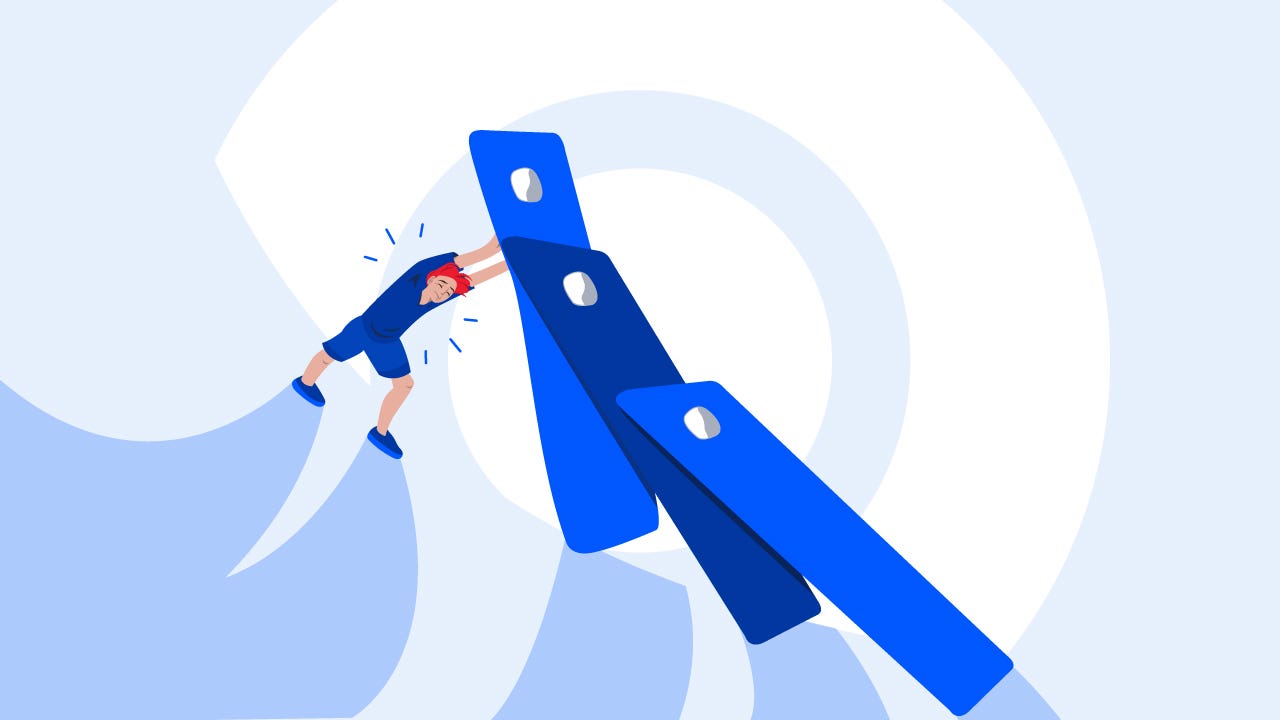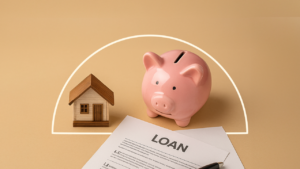Alternative ways to pay down credit card debt

Key takeaways
- Strategies such as the debt snowball and avalanche methods help provide a systematic framework for prioritizing which debts to pay off first.
- Borrowing or accessing funds at a lower interest rate than what you’re currently paying can also be a good way to eliminate unwanted account balances.
- Consider negotiating with your lenders or working with a certified credit counselor.
As convenient as credit cards may be, they also make it extremely easy to start racking up debt. According to a Bankrate study, 50 percent of consumers carry a balance from month to month, and 60 percent have had that balance for at least a year.
All that debt eventually has to be paid off. While conventional finance advice for paying down credit card debt is to cut back on purchases and make extra payments, this can often be challenging for borrowers on a tight budget. Instead, consider one of these 10 alternative ways to pay off your credit card balances.
1. Debt snowball payoff method
What if, instead of trying to make additional payments, you rethought how you are currently paying down your credit cards by prioritizing each one? This is the goal of a widely popular repayment method called the debt snowball. It’s a strategy beloved by many because it provides an easy-to-follow framework for systematically knocking out each of your debts.
To use the debt snowball method, arrange your credit cards in order from smallest to largest balance. Focus on paying off the one with the lowest balance first while only making the minimum payment on the others. Once this account is paid off in full, move down the list and focus on the one with the next smallest balance. Repeat this process until you’ve eliminated every credit card balance.
The allure of the debt snowball method is that it creates small victories early on. Paying off a credit card balance, even if it’s the smallest one, can give you the confidence you need to persist. Additionally, each debt you eliminate helps build momentum to pay down the next one faster — hence, the snowball analogy.
2. Debt avalanche payoff method
The debt avalanche method is another well-known debt repayment strategy. Similar to the debt snowball, it provides an easy-to-follow and effective structure. However, instead of focusing on the size of the debt balance, it prioritizes the APR or “annual percentage rate”—the interest rate assigned to your account.
To use the debt avalanche, begin by paying down the account with the highest APR while only making the minimum payment on the others. Once this account is paid off in full, move down the list and turn your focus to the one with the next highest APR. Repeat this process until you’ve paid off every credit card balance.
While you may not experience as many small victories early on as you would with the debt snowball method, there is a technical advantage. Because the debt avalanche centers on eliminating accounts with the highest APR, you’ll reduce the interest you pay over the life of the process and ultimately save more money in the long run.
3. Balance transfer credit cards
Just because you’ve accumulated debt on one credit card doesn’t mean it has to stay there forever. Cardholders with good credit or better usually have the option to move the balance from one card to another utilizing what’s known as a balance transfer.
A balance transfer is when you authorize a credit card with a lower APR to pay off the balance of your current credit card. This effectively moves the balance to the new account, resulting in lower interest accumulation and potentially more manageable payments.
It’s fairly common for credit card companies to offer 0 percent intro promotions where the balance transferred accrues no interest for six to 18 months. This can give you some much-needed breathing room to pay your balance without falling more into debt.
4. Debt consolidation loan
If you have multiple outstanding credit card balances, it could be challenging to keep up with them as interest charges add up. Like using a balance transfer card, you could consider a debt consolidation loan to make payments and interest charges more manageable.
Debt consolidation is taking out one large loan to pay off several smaller ones. In addition to combining your debts into one convenient payment, you’ll ideally lock in more favorable terms, such as an overall lower interest rate. This should put less of a dent in your budget and may even leave you with additional funds to pay off the consolidation loan faster.
Not all debt consolidation loans will offer you a better interest rate than what you already have, particularly if you don’t have high enough credit. Before getting a loan, make sure that the fees and interest rates of the loan aren’t more than what you’re already paying.
5. Renegotiating your debt
When you’re struggling with credit card debt, you might be surprised to learn that you can turn to credit card companies for help. Try calling customer service to explain your situation and see if they will explore options with you.
Generally speaking, credit card companies want to get repaid, so they sometimes make concessions with customers to increase the likelihood of success. That might mean enrolling you into a special low-rate promo or creating a structured repayment plan. Many companies also offer hardship programs if you’re in a difficult situation. Either way, it’s worth reaching out to see what they can offer.
6. Home equity loan
Homeowners who have been regularly making their mortgage payments typically can tap into the value of their property with a home equity loan.
Equity is the amount of money left over if you were to sell your house and pay off the mortgage in full. When you borrow against your equity with a home equity loan, you’ll receive a one-time lump-sum payment you can use to pay off debt or for other purposes. You’ll repay this loan with a fixed interest rate over the next five to 30 years.
Home equity loans generally carry much lower APRs than credit cards or even personal loans, which means the payments can be lower. However, your home will be used as collateral under this arrangement. That means your lender can seize your home if you fail to pay. If you proceed with a home equity loan, be sure you have a solid repayment plan.
To see how much you can borrow and what rates lenders currently offer, try Bankrate’s free home equity loan calculator.
7. HELOC
Another popular way to tap the equity in your home is to utilize a home equity line of credit, or HELOC for short. Instead of borrowing a lump sum, a HELOC essentially turns your equity into a credit line you can tap at your discretion. You can use as much or as little of the money available, and payments on the principal aren’t necessarily required for the first 10 to 15 years.
Similar to a home equity loan, a HELOC uses your home as collateral. Also, the interest rate on HELOCs can fluctuate, so it’s important not to run up a balance when rates are high.
8. Home equity agreement
One more way to access your home equity is through a home equity agreement (HEA). This contract allows you to sell a portion of your home’s equity to an investor. When you eventually sell the property, you’ll receive a lump sum of cash and pay the investor back (with any earnings on their portion).
HEAs allow homeowners to use their equity without getting locked into a loan or having to make a series of strict monthly payments. They are also a better fit for homeowners with lower credit scores who might experience some trouble qualifying for a traditional home equity loan.
9. Borrow on margin
If you have a taxable brokerage account where you trade stocks or other securities, you can borrow against that asset using a margin loan.
Margin loans are fairly easy to get and usually carry reasonable interest rates. However, they are unique because your account balance (i.e., the collateral) cannot fall below a certain minimum. Otherwise, the brokerage will be forced to sell or “liquidate” your shares to collect repayment. This would likely mean giving them up at a discount, which can significantly draw down your earnings potential.
10. Work with a credit counselor
Paying down credit card debt is not a fight you have to do alone. If you’re truly struggling or need guidance, you may want to consider contacting a credit counselor.
Credit counselors work with clients one-on-one to assess their situation and develop a tailored plan. These meetings may be in person at a local office or online.
Although some organizations charge for this service, you can find free assistance by contacting a nonprofit such as the Financial Counseling Association of America or the National Foundation for Credit Counseling.
Next steps
When the traditional method of paying off your credit card debt isn’t working, don’t be afraid to try an alternative strategy. Systematic payments like the debt snowball or debt avalanche will help you prioritize which balances to pay off first. Paying the accounts in full using an alternate loan with a lower interest rate is also a good way to eliminate your debt.
Regardless of which solution you choose, what’s important is to pick one and start using it. The sooner you take action against your credit card debt, the better your chances of improving your financial situation.
Why we ask for feedback Your feedback helps us improve our content and services. It takes less than a minute to complete.
Your responses are anonymous and will only be used for improving our website.
You may also like

The best debt consolidation loans for bad credit in 2025

How to consolidate debt without a loan





